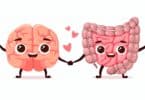Autism now affects 1 in 68 children from all ethnicities, all races, and all socioeconomic groups. Awareness is growing. More people know what it is, and what it looks like.
Yet, even with the increasing awareness, there are still a lot of common misconceptions about autism. To build awareness during National Autism Awareness month, and help improve the diagnosis, treatment, and outcomes of those affected by the condition, it’s important to debunk those myths.
What is Autism?
Many people still believe that autism is a behavioral, emotional, or mental disability, but it is not. Considered a developmental and neurobiological disorder, those that have it can fall anywhere on the very wide spectrum and have any number of deficits, disabilities, or mannerisms, including difficulty relating to others or expressing emotion, difficulty with speech or communication, learning delays, and/or sensory issues.
What Causes Autism?
This has to be one of the most widely debated topics. Everything from measles, mumps, rubella (MMR) shots to genetics to environmental exposure while in utero has been suggested. The real truth is that most experts believe that autism is caused by a culmination of things.
Genetic studies have shown that even twins who both have the condition can have different “types.” Others have shown that families with one child on the spectrum are more likely to have another than a family that does not. But other studies have suggested possible environmental issues. And still others have focused on the microbiome, a collection of micro-organisms that live within the body and has been associated with ASD in a study by John Rodakis, founder of the N of One: Autism Research Foundation.
But one thing has been dis-proven: the role of immunizations when it comes to autism.
Though there are still many groups that hold onto this belief, the study that determined the MMR vaccine was somehow connected to ASD ended up being retraced by the medical community after it was found that the results had been falsified and manipulated.
Why is There an Increase?
Though some believe that the increase is due, in part, to more people actually having autism, most experts believe that it is the awareness and the early detection that play the biggest role in the higher numbers of autism diagnoses today.
Isn’t There a Cure/Pill/Diet for It?
Just as there is no known cause for autism, there is no known cure. Medications frequently given do not treat the core symptoms, but they can help an individual on the spectrum with issues like depression, seizures, an inability to focus, and high energy levels. Special diets, though sometimes good and able to somewhat improve the effects of autism, such as high energy levels or focusing ability, are not a cure. Therapies, although helpful and sometimes able to improve how an individual interacts with others, or manages their behaviors, does not cure autism either.
“A lot of parents use these treatments because they’re worried and desperate,” Dr. Fred Volkmar, director of the Child Study Center at Yale University School of Medicine, told Medical News Today. “But we know that the placebo effect can be very pronounced in autism, so it is very hard to sort out whether you’re really seeing an improvement or why.”
It is because of this lack of a cure, and the influx of those being diagnosed, that we must seek to better understand autism. Because children with autism will become adults with autism, and our system and our society are not equipped yet to handle the increase.
Do People with Autism Have “Special Gifts?”
Probably one of the most common misconceptions about autism is that all people with the condition are savants, or people with extraordinary capabilities, such as those featured in the movie Rain Man.
Though the character of Raymond was, in fact, based on a real person, Dr. Michael Rosenthal, a pediatric neuropsychologist from the Child Mind Institute in New York City explains that this was “an extreme example.”
“Not every person on the spectrum will have a talent like that,” he said.
In fact, only 1 in 200 individuals with autism have savant abilities, and those that do may not have the same skills as those portrayed in the Academy Award winning film.
Can People with Autism Function in Society?
Probably the one big thing that the film did do for autism awareness is that it helped employers start thinking outside the box when it comes to hiring individuals with autism. While it is true that not all people on the spectrum will have savant abilities, many do have the ability to see problems and/or solutions from a different angle.
In fact, the German software company SAP AG announced back in 2013 that they were seeking to hire people with ASD as software testers, programmers, and data quality assurances specialists, saying that they wanted people who could “spark innovation” and “think differently.”
“For so long, we’ve only thought of autism in its terms of its deficits, but the tide is changing,” Dr. Rosenthal said. “Many kids are great at math, science, and technology, but they can also be great artists or musicians. We’re just beginning to understand their potential.”
Do People with Autism Feel Emotions? Can They Have Healthy Relationships?
It’s often thought that, because individuals with autism tend to shy away from interactions with others, or have a difficult time sharing their feelings and empathizing with others, that they are emotionless.
This couldn’t be further from the truth! In fact, the real problem isn’t usually that individuals on the spectrum lack emotions – it’s that they feel it very strongly, and all at once. Added to that is their difficulty in verbalizing what exactly it is they’re feeling. All of that combined can make it very difficult to make, build, and maintain relationships.
The difficulty in building and maintaining relationships can affect individuals to varying degrees and some may struggle more in certain areas than others, but most do want relationships and friendships. In fact, one study, conducted by the NAS in 2012, found that 22% of participants on the spectrum didn’t have friends, but 65% of them said they would like to have more friends.
“They don’t know what to do when a kid says ‘hi’ to them or wants to play a different game from the one they are interested in,” Dr. Rosenthal said. “They respond awkwardly.”
As they age and grow up, those difficulties can and sometimes do lead to isolation.
“Over time, these kids top seeking out other kids because they’re failing to make those connections and it doesn’t feel good,” Rosenthal explained. “That’s why this is such an important myth for people to understand.”
But not all people on the spectrum will have such difficulties with relationships. And early diagnosis and intervention could help improve their social skills so that they can better develop relationships through confidence building and an improved understanding of those around them. And, as those without autism continue to gain a better understanding of autism, those relationships become more compassionate, empathetic, patient, and understanding to the unique needs of the individuals with ASD we know and love.
Related Articles:
- Twin Study Suggests Autism Largely Attributed to Genes
- Study: Siblings with Autism may Have Different Forms of the Disorder
- Study: Pets Improve Social Skills for Children with Autism








I would like to add another widespread misconception about autism that should be addressed. There is no such thing as “mildly autistic”, a description like this is often heard in media reports. In fact, there is no clinical definition of “high functioning autism”, either. For various reasons, there are some who would downplay the seriousness of the disorder, going as far as saying autism is just a variant of normal development we all should learn to accept. Everything on the autism spectrum is a disability by definition (DSM5), no matter how much higher functioning a person is. If you are diagnosed autistic, you are technically disabled. Everybody probably has some autistic like traits occasionally in small doses, like being a little shy or awkward or “nerdy”. But that doesn’t make you autistic and disabled.
MYTH: Autism is a mysterious brain disorder of fully unknown origin and no known methods of remediation – it begins/ends in the brain and the only worthy mode of helping is behavioral therapy, or pharmaceuticals to control behavior.
Actuality: Autism is a complex disorder affecting the entire body; when seen accurately and treated from an integrative medical approach, children routinely note improvements in health, learning, behavior. Body affects brain, thus improving physiology is sensible and scientifically sound.